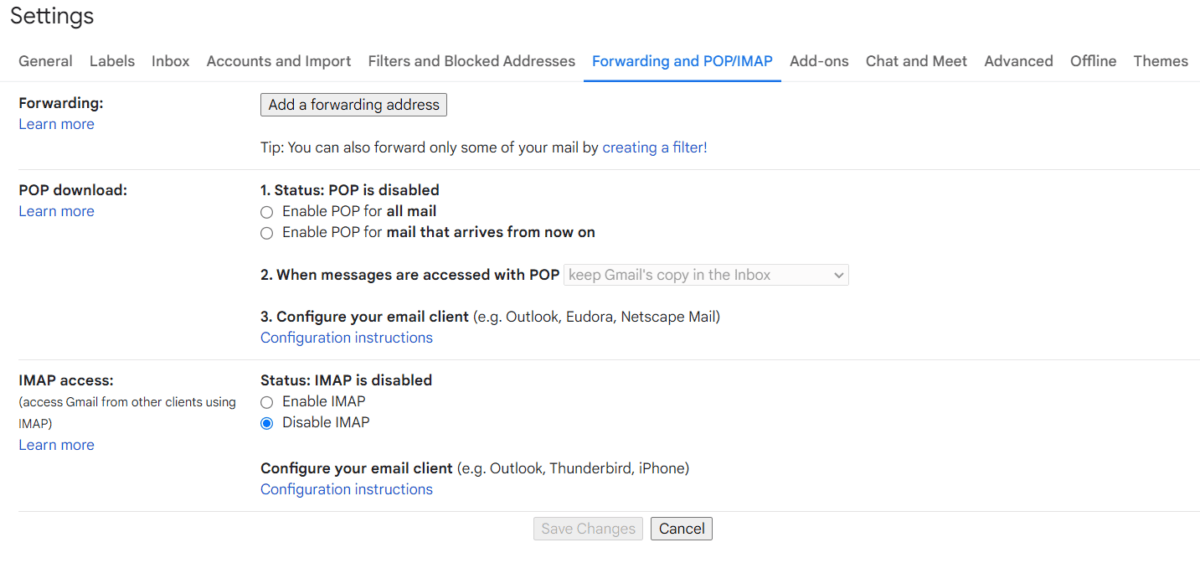Do you have a hybrid or remote team where you would like to have the rights tools for effective collaboration and more importantly communicate clearly while dealing with a multitude of other important tasks?

Zoho Mail offers professional email hosting with seamless integration into the Zoho software suite.
Free Plan Available

Proton Mail prioritizes privacy and security with end-to-end encryption for email communication.

Hostinger Mail provides affordable and reliable email hosting solutions with enhanced security features.
Having the right email hosting provider can help you become more effective in managing your team and increase your productivity. Email have increase in its importance for the past 10 years, growing the user based by 27.21% to 4,481 million users sending over 300 billion emails today. Shockingly, 92% if all organizations were victims of phishing which can be prevented with the right email service provider.

Now, as we are becoming more connected online, email have become the most essential tool for us to communicate online. With that, let’s take a look at some of the top handpicked email service providers you may want to consider.
Best Email Service Providers For Remote Team
1. Gmail (Google Workplace)

Gmail
- Mailbox size: up to 30 GB
- Maximum attachment size: up to 25 MB
- GDPR compliant: Yes
Gmail is one of the most popular email service providers globally, known for its user-friendly interface and seamless integration with other Google services.
Free Account Available. No Credit Card Required
2. Outlook (Microsoft 365)

Outlook
- Mailbox size: up to 50 GB
- Maximum attachment size: up to 25 MB
- GDPR compliant: Yes
Outlook.com, part of Microsoft’s suite of webmail services, offers a wide array of features tailored for personal and professional use, including email, contacts, tasks, and calendaring services.
Free Account Available. No Credit Card Required
3. Zoho Mail (Editor’s Pick)

Zoho Mail
- Mailbox size: up to 50 GB
- Maximum attachment size: up to 1 GB
- GDPR compliant: Yes
Zoho Mail is a professional email service member of Zoho’s cloud-based office suite, offering robust email solutions with a focus on security and integration.
Free Account Available. No Credit Card Required
4. Neo Mail

Neo Mail
- Mailbox size: up to 100 GB
- Maximum attachment size: up to 30 MB
- GDPR compliant: Yes
Neo is a professional email provider catering to entrepreneurs and small businesses, offering personalized email addresses and AI-driven tools for efficient communication.
Free Account Available. No Credit Card Required
5. Proton Mail

Proton Mail
- Mailbox size: up to 500 GB
- Maximum attachment size: up to 25 MB
- GDPR compliant: Yes
Proton Mail prioritizes privacy and security, offering end-to-end encrypted email services to protect user data from surveillance and exploitation.
Free Account Available. No Credit Card Required
Best Self-Hosted Email Service Providers For Remote Teams And Businesses
6. DreamHost (Web + Email Hosting)

DreamHost Mail
- Mailbox size: up to 25 GB
- Maximum attachment size: up to 40 MB
- GDPR compliant: Yes
DreamHost offers unlimited business email addresses with ample storage and cross-device accessibility, making it a versatile email solution for small businesses and entrepreneurs.
7. InMotion (Web + Email Hosting)

InMotion Mail
- Mailbox size: up to 20 GB
- Maximum attachment size: up to 50 MB
- GDPR compliant: Yes
InMotion Hosting provides email hosting solutions with a focus on guaranteed uptime, fast SSD storage, and comprehensive support, making it an ideal choice for businesses prioritizing reliability and performance.
8. Hostinger (Web + Email Hosting)

Hostinger
- Mailbox size: up to 50 GB
- Maximum attachment size: up to 25 MB
- GDPR compliant: Yes
Hostinger offers affordable email hosting solutions with reseller-friendly plans and enhanced security features, making it an attractive option for agencies, resellers, and small businesses.
9. Hostgator (Web + Email Hosting)

Hostgator
- Mailbox size: up to Unlimited
- Maximum attachment size: up to 30 MB
- GDPR compliant: Yes
HostGator offers budget-friendly email hosting solutions with robust security features and convenient email management tools, making it a suitable option for individuals and small businesses.
How to Choose the Best Email Service Provider for Your Remote Team
Knowing how to choose the best email hosting provider can help keep your digital data secure while enhancing your work effectiveness. A good email service provider should have basic criteria such as:
- Ability to securely send out emails to your team with options such as; To, CC or Bcc.
- Ability to securely filter incoming email and identify harmful emails such as; spam, phishing or containing suspicious attachments.
- Offers a high uptime to ensure uninterrupted email communication for businesses and team communications.
Step 1: Know Key Basic Features of Email Provider

Choosing the best email service provider for your remote team starts with understanding the core features that will support your team’s communication needs. These features should enhance productivity, providing an intuitive interface and ease of use.
Number of Contacts
Your chosen email service should accommodate the size of your team’s database. Assess the maximum number of contacts allowed, ensuring the platform can grow with your team.
Number of Emails Sent Per Day
Consider the daily volume of emails your team will send. Providers vary in the number of emails they allow you to send per day, so select one that best matches your team’s output.
Number of Users Using Same Account
Collaboration is key in remote teams. Verify how many users can access the same account simultaneously. This capacity should align with your team’s need for multiple users managing emails.
Size of Email Sent
The size limit for outgoing emails impacts your ability to send comprehensive materials. Ensure the chosen provider supports the email size your team requires for attachments and content.
Backups and Storage
Secure backups and ample storage are essential for safeguarding your team’s communication. Look for providers offering robust storage solutions and straightforward backup options to protect your valuable data.
Step 2: Look Into Advance Features

When choosing an email service provider (ESP) for your remote team, advanced features that enhance collaboration and integration are vital. They will empower your team to work more effectively across different locations and platforms.
Features for Remote Collaboration
Your ESP should facilitate seamless communication and provide an intuitive interface. Look for real-time editing capabilities allowing multiple team members to work on the same document simultaneously. In addition, consider the availability of a mobile app that maintains functionality across all devices, ensuring that team members can stay connected even on the go. The ability to organize conversations through threading or tagging and customizable notification settings to minimize distractions are also key features that can hugely benefit remote teams.
Integration Capabilities with Other Tools
To streamline workflows, your ESP should offer strong integration capabilities with other tools such as project management software, cloud storage services, and customer relationship management platforms. This integration allows for a more centralized workspace and reduces the need to switch between different applications. Whether it’s syncing with calendar apps for scheduling or utilizing add-ons and plugins for enhanced functionality, the email service you choose should fit neatly into your existing suite of tools. An intuitive and easy-to-use interface can significantly shorten the learning curve for all team members, enabling a swift and successful adoption of the tool within your remote team.
Step 3: Evaluate User Experience and User Interface

Choosing the best Email Service Provider (ESP) for your remote team hinges on thorough evaluation of user experience (UX) and user interface (UI). Consider how these aspects will empower your team to communicate effectively and efficiently.
Comparing Mobile and Desktop Accessibility
Your team’s mobility is crucial, as is the ability to access emails on the go. Examine the mobile app of the ESP for features like push notifications and offline access to ensure seamless communication. The mobile app should have ease of use and be intuitive, akin to the desktop apps. Check for integration with other tools your team uses, as this can streamline workflows between devices.
Assessing the User Interface for Efficient Workflows
An effective ESP offers an interface that augments your team’s productivity. Look for a clean layout with straightforward navigation features. Daily tasks should be hassle-free; thus, the ability to organize emails or search for content swiftly is important. The UI’s design has a direct impact on daily operations, so assess whether it offers an uncluttered experience that enhances, rather than hinders, your team’s ability to perform their work with inspirational confidence.
Step 4: Consider Data Security and Privacy
Choosing the best email service provider for your remote team involves prioritizing data security and privacy. This step helps safeguard sensitive business communications and protect against cyber threats and email spams.
Essential Security Features for Business Email
- End-to-end encryption is vital for securing email content from unauthorized access. Look for providers offering robust encryption protocols to ensure your messages are protected both in transit and at rest.
- Spam filters and phishing protection are non-negotiable for business email. Strong filters help keep unwanted or harmful emails from cluttering your inbox.
- Providers should also validate emails using standards like DKIM (DomainKeys Identified Mail) and DMARC (Domain-based Message Authentication, Reporting, and Conformance) to authenticate incoming messages and protect your domain from being used for email spoofing.
To enhance account security, implement two-factor authentication (2FA). This adds an extra layer of verification, making it tougher for unauthorized users to gain access even if they have your password.
Privacy Concerns in Remote Work Settings
Privacy takes on added importance in remote work environments. Ensure your email service provider has clear and stringent privacy policies that align with your business values and compliance requirements.
Be aware of where your data is stored. Choose a provider that uses data centers in jurisdictions with strong privacy laws to protect your information from unwarranted access or surveillance.
By meticulously considering these security and privacy aspects, you empower your remote team with the tools and confidence to communicate effectively and securely.
Step 5: Comparing Cost and Value for Money

When selecting an Email Service Provider (ESP) for your remote team, it is crucial to balance cost against the benefits received. Your choice should empower your team without overshooting your budget.
Finding a Provider That Fits Your Budget
Identify ESPs that offer pricing structures within your financial reach.
- For small businesses, options may include tiered plans based on the number of users or emails sent.
- For large businesses, you might seek enterprise-level solutions that cater to a larger user base and increased demand.
When setting your budget, always consider both current and future needs to ensure scalability.
Analyzing Pricing Against Service Offerings
Examine each ESP’s pricing to gauge the price-to-usefulness ratio.
Compare cost-efficiency by looking at what’s included:
When choosing the right email service provider that suit your remote team, ask yourself, “do they offer advanced features like automation, analytics, or integration capabilities that justify their price?” Look at what your team actually needs rather than just the list of features offered.
Antony C., HQHIRE Founder
A service may have a higher upfront cost but offer greater value in the long run if it enhances team productivity and contributes to overall goals.
Weigh pricing against the specific needs of your remote team to decide which ESP provides the best value for money.
Step 6: Get Testimonials and Reviews From Other Companies and Businesses

When selecting an email service provider (ESP) for your remote team, knowing the experiences of others can be invaluable. It’s crucial to gather testimonials and reviews from companies similar to yours.
- Start by reaching out. Ask other businesses within your network about their ESP experiences.
- Conduct a quick survey. Tailor questions to understand the provider’s reliability, customer service, and feature set.
- Use social media to solicit feedback. LinkedIn and industry forums can provide a wealth of insights.
- Consider the specifics of remote work. Ensure the reviews address the needs of a team that’s not office-bound, like mobile access and integration capabilities.
Here’s an example of email service provider comparison according to your own remote team’s needs:
| Criteria | Company A | Company B | Company C | Company D |
|---|---|---|---|---|
| Collaboration Tools | Basic | ✔️ Advance | ✔️ Advance | Basic |
| Email Attachment Size | 25 MB | 20 MB | 30 MB | ✔️50 MB |
| Deliverability Rates | 2000/hr | 2500/hr | ✔️ 3000/hr | 1500/hr |
| Customer Service | Live Chat, Email | Live Chat, Email | Live Chat, Email | ✔️ Live Chat, Email, 24/7 Phone |
| Integration Options | Limited | No | Limited | ✔️ Comprehensive |
This step is about leveraging collective knowledge. It’s about finding a partner, not just a provider, who can empower your team, wherever they may be.
The best ESP should make your day-to-day processes smoother and help your remote team thrive.
Approach this step with the same rigor you’d apply to hiring a key team member, because in many ways, choosing an ESP is just that—bringing on a crucial ally for your business’s communication needs.
Step 7: Understand The Terms of Service Before Committing

When selecting an email service provider (ESP) for your remote team, reviewing the terms of service (ToS) is crucial. This document outlines your rights and obligations. It also includes the provider’s policies on data privacy and service usage. Here’s how you can approach this step:
- Read Carefully: Take the time to read through the ToS. Look for clauses that affect your team’s workflow and data security.
- Data Handling: Ensure their data management policies align with your company’s privacy standards.
- Service Limitations: Identify any usage limits that could impact your team’s performance.
- Support and Resolution: Note the support options and dispute resolution process.
- Compliance: Check that the ESP complies with necessary regulations, like GDPR for teams operating in or with the EU.
You have the right to negotiate terms before agreeing. If anything is unclear, reach out to their customer service for clarification. By understanding the ToS, you’ll foster a trusting relationship with your ESP and empower your remote team with reliable communication tools. Remember, insight into these details will protect your team’s interests in the long run.
Products featured maybe from our partners who compensate us. While this may influence which products we write, it will not influence our opinions and evaluation. We follow strictly according to our editorial guideline. Our opinions are our own. Here is how we make money.
Join over 11,000+ achievers who are committed to achieving their career goals!




![How to Hold an Effective Team Catch up Meeting [+Examples] 23 How to Hold an Effective Team Catch Up Meeting](https://hqhire.com/wp-content/uploads/2024/04/Face-to-Face-Meeting-7-min.jpg)
![100+ Best Soft Skills to Put on Resume [According to Statistics] 24 List of The Best Soft Skills For Resume At Work](https://hqhire.com/wp-content/uploads/2022/08/List-of-The-Best-Soft-Skills-For-Resume-At-Work-768x402.jpg)

